Additional Final Regulations on Section 163(j) Issued
The IRS has issued final regulations providing additional guidance on the limitation on the deduction for business interest under Code Sec. 163(j). The regulations finalize various portions of the proposed regulations issued in 2020 with few modifications. They address the application of the limit in the context of calculating adjusted taxable income (ATI) with respect to depreciation, amortization, and depletion. The regulations also finalize rules on the definitions of real property development and redevelopment, as well as application to passthrough entities, regulated investment companies (RICs), and controlled foreign corporations.
Calculating ATI
A taxpayer’s ATI for purposes of the Section 163(j) limit is the taxpayer’s tentative taxable income for the tax year with certain adjustments. For example, depreciation, amortization, and depletion for tax years beginning before January 1, 2022, is added back to tentative taxable income, but is subtracted from tentative taxable income if the taxpayer sells or disposes the property before January 1, 2022.
The final regulations provide that a taxpayer has the option to use an alternative computation method for property dispositions where the ATI adjustment is the lesser of: (1) any gain recognized on the sale or disposition; or (2) the greater of the allowed or allowable depreciation, amortization, or depletion deduction of the property sold before January 1, 2022.
Similar rules apply for the sale or other disposition of an interest in a partnership or stock of a member of a consolidated group. However, the negative adjustment to tentative taxable income is reduced to the extent the taxpayer establishes that the additions to tentative taxable income in a prior tax year did not result in an increase in the amount allowed as a deduction for business interest expense for the year.
Real Property Development
The Section 163(j) limit does not apply to certain excepted trades or businesses, including an electing real property trade or business. An electing real property trade or business is any trade or business described in Code Sec. 469(c)(7)(C).
In response to comments about the application of this definition to timberlands, the 2020 proposed regulations provided definitions for real property development and redevelopment for clarity relying on the Code Sec. 464(e) definition of farming for that purpose. Section 464(e) generally excludes the cultivation and harvesting of trees (except those bearing fruit or nuts) from the definition of "farming".
The final regulations retain these definitions for real property development and real property redevelopment. Thus, to the extent the evergreen trees may be located on parcels of land covered by forest, the business activities of cultivating and harvesting such evergreen trees are a component of a "real property development" or "real property redevelopment" trade or business.
Self-Charged Lending
The final regulations adopt the proposed rules for self-charged lending transactions between partners and partnerships without change. For a transaction between a lending partner and a borrowing partnership in which the lending partner owns a direct interest, any business interest expense of the borrowing partnership attributable to a self-charged lending transaction is business interest expense of the borrowing partnership.
However, to the extent the lending partner receives interest income attributable to the self-charged lending transaction and also is allocated excess business interest in the same tax year, the lending partner may treat that interest income as an allocation of excess business income from the borrowing partnership to the extent of the lending partner’s allocation of excess business interest expense.



